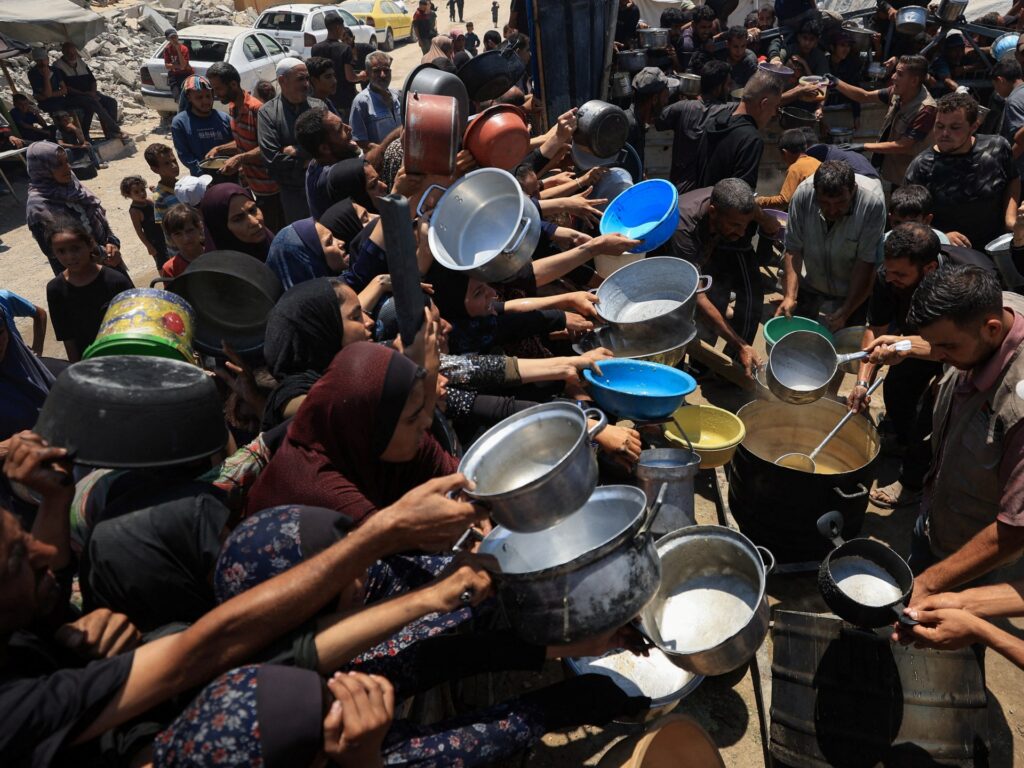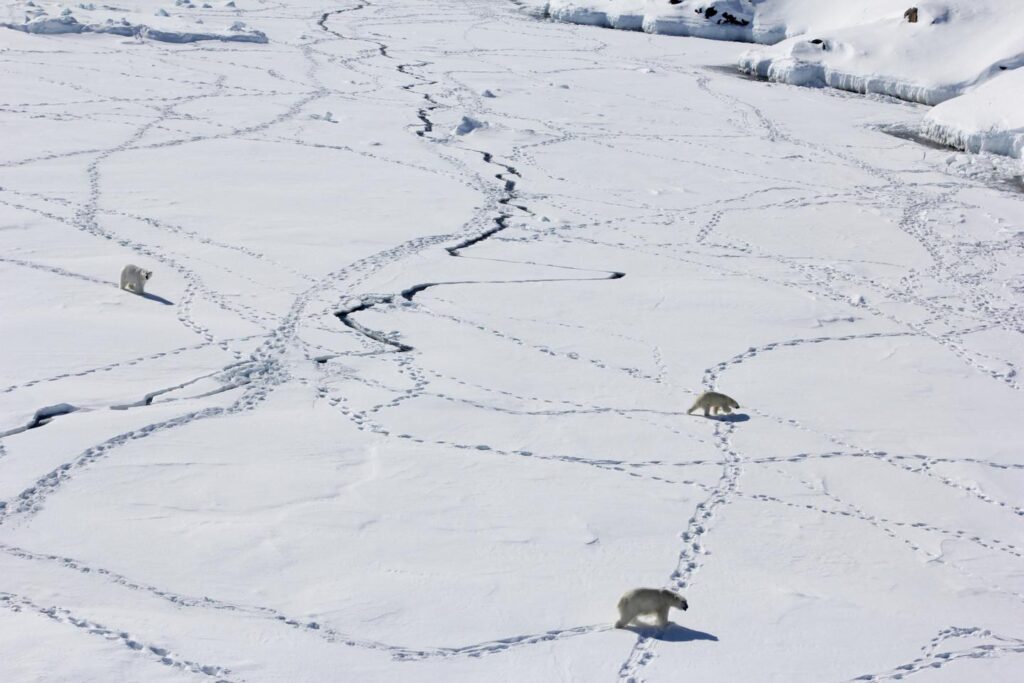More than 100 aid and human rights groups have called on governments to take urgent action as Israel’s forced “mass starvation” of Palestinians engulfs Gaza, including by demanding an immediate and permanent ceasefire and the lifting of all restrictions on humanitarian aid.
In a statement signed and released on Wednesday by 109 organisations, including Mercy Corps, the Norwegian Refugee Council and Doctors Without Borders (also known as MSF), the groups warned that deepening starvation of the population was spreading across the besieged enclave.
Tonnes of food, clean water, medical supplies and other items sit untouched just outside Gaza as humanitarian organisations are blocked from accessing or delivering them by Israel.
“As the Israeli government’s siege starves the people of Gaza, aid workers are now joining the same food lines, risking being shot just to feed their families. With supplies now totally depleted, humanitarian organisations are witnessing their own colleagues and partners waste away before their eyes,” the organisations said.
“The humanitarian system cannot run on false promises … The Government of Israel’s restrictions, delays, and fragmentation under its total siege have created chaos, starvation, and death,” the statement added.
Ten new deaths linked to famine and malnutrition have been recorded during the past 24 hours by hospitals in the Gaza Strip, according to the Ministry of Health.
The grim count brings the total number of people starved to death in the territory to 111, the ministry’s statement said.
In recent weeks, more than 1,000 desperate people have been killed trying to reach food, mostly in mass shootings by Israeli soldiers posted near GHF distribution centres, according to the United Nations. The notorious group, backed by the United States and Israel, has been fiercely criticised by humanitarian organisations, including the UN, for an alleged lack of neutrality since starting operations in late May.
The NGOs also called for governments to demand that all bureaucratic and administrative restrictions be lifted, all land crossings be opened, access to everyone across Gaza to be ensured and for the rejection of military-controlled distribution and a restoration of a “principled, UN-led humanitarian response”.
“States must pursue concrete measures to end the siege, such as halting the transfer of weapons and ammunition.”
More than two dozen countries called on Monday for an immediate end to the war, saying suffering in Gaza had “reached new depths”.
The EU has also warned Israel of action over the worsening starvation crisis in Gaza, as the US said Trump’s envoy, Steve Witkoff, will head to Europe for ceasefire talks and an aid “corridor”.
‘Peak level of starvation’
Israel, which controls all supplies, food, medicine and fuel entering Gaza, has imposed a punishing blockade for months, only partially easing it for GHF. The Israeli government denies it is responsible for food shortages, despite eveidence to the contrary, claiming that 950 trucks’ worth of aid were in Gaza and waiting for international agencies to collect and distribute it.
Hamas has urged “all the free people of the world” to organise demonstrations, sit-ins and “angry marches” on July 25, 26, 27 and “all the coming days, until the siege is broken and the famine ends” in Gaza.
“(…) people are dying of hunger and malnutrition, and famine is making its deadly presence felt in the faces of children, mothers, and the elderly, amidst a suspicious global silence, and the absence of any action that rises to the scale of the catastrophe,” its statement published on Telegram said.
GHF said in a statement that the UN, which refuses to work with it, “has a capacity and operational problem” and called for “more collaboration” to deliver life-saving aid.
Mara Bernasconi, the regional communications and advocacy manager for Humanity & Inclusion UK, an NGO with teams working in Gaza, told Al Jazeera that Gaza is at the “peak level of starvation”.
She said humanitarian workers living in Gaza are not excluded from this suffering and have experienced “death, hunger, displacement, danger” for 21 months of war.
“They are struggling to concentrate and function (while performing their jobs) because they face directly the effect of dehydration and malnutrition, and we are watching them starve to death, and it’s insane, because this is a man-made humanitarian crisis and is deteriorating daily because it’s allowed by impunity and inaction,” Bernasconi said.
Medical personnel and journalists continue to work under intensive duress, worsened by their own hunger.
”We continue our work despite the spreading famine and the severe shortage of food supplies. I haven’t had a single meal in the past two days, and I’m barely holding on,” Raja al-Attar, an ambulance driver, told Al Jazeera.
“My family is also struggling – they can’t access even the most basic necessities. We were forced to flee our home in Deir el-Balah because of the ongoing military operation. Right now, I’m sleeping at my workplace, because there’s nowhere else to go.”


